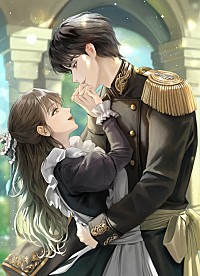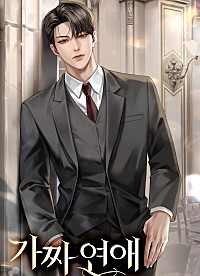Sister, I'm the Queen This Life - Chapter 18
Cesare de Como.
As the illegitimate son of Leo III and the legal son of the Count of Como, he had always been dissatisfied with life.
Glory was always within reach, but just before it fell into his grasp, it would become the possession of another, lesser person. The prime example was the title of prince given to the milk-breathed youngster Alfonso.
He occupied the balcony seat on the right side of the central aisle of the Great Cathedral, but was still unsatisfied.
This was not the topmost balcony seat where the ‘real royal family’ gathered to attend High Mass, but the balcony seat installed one level below.
The king always reluctantly attended High Mass from the topmost balcony seat on the right, together with the queen he did not get along with and their adorable puppy-like son.
The atmosphere in the balcony seat where the royal couple gathered was always cold, but despite this, Leo III never set foot on the lower balcony seat filled with laughter and jokes.
Cesare and Countess Rubina could only claim Leo III in the secret inner chambers, never in official settings.
All his attention was focused on the topmost balcony seat on the right, but out of pride, he could never look up.
It was horrifying to even imagine meeting the downward gaze of that Alfonso boy, who had achieved nothing on his own, while Cesare himself was looking up from below.
Cesare hated kneeling and looking up from below more than anything in the world.
To distract himself, he looked down at the lower gallery where the beautiful Isabella, daughter of the Cardinal, was strutting across the central aisle of the gallery.
While he thought the act itself was in poor taste, the sight of the beautiful 17-year-old girl swaggering like an excited fairy was pleasant to behold.
Isabella had the magic to gather everyone’s attention. It was a spectacular view from above. Men’s heads turned sequentially towards the central aisle following her footsteps.
‘This is not a wheel formation, for heaven’s sake.’
Cesare secretly mocked the robed men below who couldn’t control their own heads, bewitched by a woman.
He thought himself special. The firstborn son of the king, born of royal blood. It was only natural that he, superior by bloodline, should have everything in the world.
And the suitable mate for himself, the most excellent male, would be Isabella de Mare, the most coveted female in all of San Carlo.
He wanted to possess Isabella.
It was in the same context as wanting to possess the ruby as big as a fist brought by a merchant from the Porto Republic last month, the exotic black-skinned Moorish slave, and the cannon, a new item said to have come from the Duchy of Valois.
It wasn’t that he was interested in the items themselves, but rather he wanted the admiration that would be poured on Cesare himself for possessing them.
− ‘As expected of Count Cesare, all the finest mares are his property, aren’t they?’
− ‘Not just mares, all the beauties of San Carlo Castle are his captives.’
− ‘To even have Isabella de Mare! Count Cesare is truly remarkable.’
The corners of his mouth turned up involuntarily as he imagined the group of men who always hung around together, lifting him up with their tasteless jokes.
From the floor below, the golden girl looked up at him and smiled sweetly.
For a shy lady to show such bold interest in him, this was a signal that as a gentleman, he could not help but answer. He nodded slightly to return her flirtation.
‘I should ask Cardinal de Mare about his thoughts on a marriage proposal again soon. I should also bring it up when I see Father next month.’
While gazing greedily at Isabella, Cesare noticed a black-haired girl following behind her.
The gloomy and plain appearance of the black-haired girl stood out awkwardly between the radiant Isabella and the glamorous Lucrezia. He asked his mother, Countess Rubina, who was standing behind him.
“Mother, who is that dark girl mixed in with Cardinal de Mare’s family?”
Countess Rubina, while tending to her nails with a long file, answered without even looking up.
“She’s the second daughter that Cardinal de Mare had with another mistress. I hear she’s already caught Queen Marguerite’s eye.”
“What could she possibly see in her?”
“Don’t judge people solely by their appearance. The fact that such a young thing has already caught the eye of the fastidious Queen Marguerite shows she’s no ordinary person.”
“What use is a clever girl?”
Countess Rubina, a beautiful woman with sharp features and delicate lines just like Cesare, looked at her son with narrowed eyes.
“Do you think your mother got to this position with just a pretty face?”
“Isn’t that so?”
Countess Rubina glared disapprovingly at her son, who was now rebelling as he had grown up.
“Foolish child.”
At that moment, the pipe organ of the Great Cathedral began to play majestically. It was the melody signaling the start of the sermon.
Against the background of the music, a man wearing rough hemp clothes and a flat priest’s hat slowly ascended to the central altar.
He was an unusual man with an exceptionally tall stature, sunken eye sockets, and piercing eyes with a formidable gaze.
“The sermon seems to be starting. That must be the Apostle of Acereto.”
Cesare, trying to deflect his mother’s anger, pretended to focus on the sermon despite his seething inner thoughts.
The noisy interior of the Great Cathedral gradually quieted as the Apostle of Acereto ascended the altar. The atmosphere was more focused and expectant than usual when waiting for Cardinal de Mare’s sermon.
In contrast to Cardinal de Mare’s sermons in Latin, the Apostle of Acereto’s sermons were in Etruscan-Acereto, the language used by common people.
−”He was born as a human.”
His sermon was provocative from the very first words.
−”Born in a barn in Jesak as the son of a shepherd, he laughed, lived, and learned as a human until he became the Son of the Holy Spirit at the age of thirty, receiving the command of the Holy Spirit.”
People held their breath, focusing intently on the Apostle of Acereto.
−”It was only when the Holy Spirit chose him as His Son through the first sacrifice that He, born as a human, finally became the Holy Son and acquired the same divinity as the Holy Spirit.”
At this point, the audience’s reaction was dramatically divided. While some were enthusiastically agreeing, others looked uncomfortable.
− ‘So the Lord of Jesak wasn’t originally the Son of the Holy Spirit from birth, but originally the son of a man?’
− ‘Isn’t this too extreme?’
The Apostle of Acereto’s sermon drew very different reactions from people.
Among the poor and the needy, his sermons were explosively popular.
The idea that even the lowest person could be chosen by the Holy Spirit as His own son and be placed on the highest throne in the thousand-year kingdom under heaven if they embodied, learned, mastered, and practiced the teachings of the Holy Spirit was irresistibly attractive.
On the other hand, to the literate class and the ruling class, the Apostle of Acereto’s sermon was subversion itself.
To the nobility, the Apostle of Acereto’s sermon that ‘even the lowest can rise to the highest’ was a grave threat. The established Holy See and its subordinate Holy Churches taught the believers as follows:
− ‘Noble spirits are born as royalty or nobility to do good deeds, and lowly spirits are born as commoners to atone. One must do many good deeds to be born as nobility in the next life, and being born as royalty or nobility itself proves that one has qualities that are admirable in the eyes of the Holy Spirit.’
The royalty and nobility could gain legitimacy for their rule based on this teaching. To say that a commoner could directly become a son of God, bypassing this stage, was a challenge to the existing social order.
For the clergy, the Apostle of Acereto posed an even more practical problem.
The canon of the Holy Scripture consisted of the ‘Meditations’ left by the Lord of Jesak, and the ‘Gospels’ left by the six disciples of the Lord of Jesak. While the Gospels, being records left by humans, were open to interpretation, the Meditations were given sacred meaning down to every punctuation mark and typo as the direct words of the Son of God.
The authority of the Holy See mainly came from the ‘Meditations’. When secular powers took actions contrary to the Holy See, the Holy See would extract a line from the Meditations to refute it. Combined with excommunication, the Pope’s prerogative, there was nothing it couldn’t handle.
A few years ago, when the Grand Duke of Acereto tried to cast aside his first wife and take seven-year-old Bianca of Taranto as his second wife, Pope Ludovico, yielding to the pressure from surrounding monarchs including Leo III who were concerned about the inheritance rights of Taranto passing to Acereto, firmly presented the Grand Duke of Acereto with verses from the ‘Meditations’.
− “Treat your wife well.” “Marriage is sacred.” “The old shall not covet the young.”
When the divine authority of the Meditations was recognized, these extracted verses were categorical imperatives.
They simply had to be followed unconditionally. On the other hand, if the Meditations were to be lowered to mere human language written when the Lord of Jesak was human, like the Gospels, then there would now be room for interpretation.
− “Treat your wife well.”
If this were not the word of God but mere human words, wouldn’t it not apply to a wife who is jealous and wicked, rather than a virtuous lady deserving of good treatment?
− “Marriage is sacred.”
If marriage is sacred because it can produce blessed heirs in the bosom of the Holy Spirit, should a marriage also be respected if the wife is barren?
− “The old shall not covet the young.”
Wouldn’t it be alright if the young person is mentally mature? Wouldn’t it be appropriate to exempt the above verse if the young person loves the older person first?
The Grand Duke of Acereto couldn’t resist long against Pope Ludovico’s threat of excommunication based on the extracted verses from the Meditations and had to give up Bianca of Taranto.
However, after the failure of his attempt to covet Bianca of Taranto, the Grand Duke of Acereto gave full support to the Apostle of Acereto, who was then just called ‘Priest Alejandro’.
He gave him the Great Cathedral to preach in, which was unprecedented for a mere priest, and allocated funds from the Grand Duchy’s budget to feed and clothe the young priests who came to seek the Apostle.
This was the result just a few years later. Priest Alejandro had now become the Apostle of Acereto, riding on the support of the people and threatening the clergy and nobility.
Ariadne was standing like a shadow at the very back of the left balcony of the gallery, behind Lucrezia, Isabella, and Arabella, when she quietly stood up without drawing attention.
Arabella looked at Ariadne as she stood up, but Ariadne whispered to her discreetly.
‘I’m just going to the restroom for a moment.’
Ariadne removed all the gold earrings that Lucrezia had given her and tucked them into her sleeve.
A perfect stage required perfect attire. Holding her breath as if dead silent, Ariadne descended the steep stairs to the first floor of the gallery and hid behind the balustrade, waiting for the critical moment.
The Apostle of Acereto’s sermon was reaching its climax.
−”The Lord of Jesak was, after all, the son of man!”
As the mature baritone voice of the middle-aged man resounded through the Great Cathedral and the audience listened with mixed feelings, a husky, pleasant voice, heavy for a girl, pierced through the space.
“You should be ashamed!”
It was Ariadne.
An Indifferent Woman is the One Men Desire the Most
One-line summary: The female lead is actually cold-hearted and extremely rational. She has stage-by-stage relationships and won’t two-time, but there will always be someone who secretly likes her.
This novel has the following triggers, so if you’re sensitive to these, please don’t read:
1. The female lead has had many relationships, but she treated each one seriously and broke up properly.
It’s just that the men unilaterally pestered her incessantly. For the female lead, when she doesn’t like someone anymore, she simply doesn’t like them.
(This applies to her relationships with Male Lead 1, 2, 3, and 4 as well, but she’s loyal in each 1-on-1 relationship!)
2. In this novel, Male Lead 2 and the female lead kiss in a car, and Male Lead 1 sees it and beats up Male Lead 2.
The female lead calls the police and sends both Male Lead 1 and 2 to the police station! Male Lead 1 begs the female lead not to break up with him.
3. Male Lead 1 has a gentle appearance but an obsessive personality.
Male Lead 2 has a delicate and soft appearance, slightly green tea-like (two-faced).
Male Lead 3 is a youthful college student and a smart person who has secretly liked the female lead for a long time.
Male Lead 4 is the female lead’s father’s special assistant, a business elite with deep, hidden thoughts.
4. At the beginning of this novel, the female lead has already broken up with Male Lead 1 (Chapter 4) and gotten back together with Male Lead 2 (ex-boyfriend).
5. Enter with caution if you have triggers!!!









